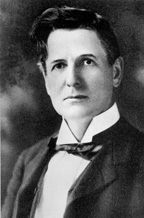A joint resolution of Congress doesn’t empower the United States to acquire another country. Only a treaty can do that.
Professor Williamson Chang of the University of Hawai’i Williams S. Richardson School of Law as a contributor previously published this article in Civil Beat. Professor Chang has allowed this piece to be posted on this blog. Williamson Chang is a professor of Law and member of the faculty senate at the University of Hawai‘i at Manoa. Professor Chang has been teaching at the University of Hawai‘i School of Law for 37 years. He specializes in water rights, Native Hawaiian rights, the legal history of Hawai‘i and conflict of laws.
 In Civil Beat recently, Justice Antonin Scalia, associate justice of the U.S. Supreme Court, made two critical points on the annexation of Hawaii: First, he stated that a joint resolution of the United States could acquire the territory of Hawai‘i — a foreign, sovereign and independent nation state. Second, he stated that the Constitution permitted the use of a joint resolution instead of a treaty.
In Civil Beat recently, Justice Antonin Scalia, associate justice of the U.S. Supreme Court, made two critical points on the annexation of Hawaii: First, he stated that a joint resolution of the United States could acquire the territory of Hawai‘i — a foreign, sovereign and independent nation state. Second, he stated that the Constitution permitted the use of a joint resolution instead of a treaty.
He was wrong on both points.
First, a joint resolution is merely a law, an act of Congress. It has no power to acquire the territory of a foreign, sovereign state. If such a thing were possible, Hawai‘i itself could have, by an act of its Legislature, acquired the United States. Second, the only mode by which the United States could acquire Hawai‘i, an independent and sovereign nation like the United States, would be by treaty.
Second, the acquisition of Hawai‘i by a joint resolution of Congress would undermine the Constitution. The use of a joint resolution in place of a treaty would be an “end run” around an enumerated power — the power over foreign affairs that is delegated solely to the president and the Senate. The House has no power as to foreign affairs and does not vote on or ratify treaties.
Moreover, the use of joint resolution to accomplish a treaty with a foreign sovereign undermines the super-majority required of the Senate as to the ratification of treaties. The Senate must ratify such measures by a two-thirds majority of those Senators present.
This is made clear in the U.S. Constitution, Article II, Clause 2: “[The President] shall have the Power, by and with the Advice and Consent of the Senate, to make Treaties, provided two thirds of the Senators present concur …”
 The inability of President William McKinley to garner the necessary two-thirds vote in the Senate to ratify the Treaty of Annexation of 1897 led the administration to seek annexation by a mere act of Congress — a joint resolution. The administration could pass a joint resolution but not a treaty. This is precisely why McKinley attempted to annex by joint resolution.
The inability of President William McKinley to garner the necessary two-thirds vote in the Senate to ratify the Treaty of Annexation of 1897 led the administration to seek annexation by a mere act of Congress — a joint resolution. The administration could pass a joint resolution but not a treaty. This is precisely why McKinley attempted to annex by joint resolution.
Many are ignorant of or deceived about the joint resolution and the acquisition of Hawai‘i. Many do not know the specifics of  the U.S. Constitution or the history of Hawai‘i. Yet, we expect more from Justice Scalia, for he has great power over the future of Native Hawaiians. His exchange with Jacob Bryan Aki, as published in Civil Beat, showed a surprising lack of constitutional knowledge. Aki, a Hawaiian student at George Washington University, asked Justice Scalia the following question during a class visit to the Supreme Court on Feb. 11:
the U.S. Constitution or the history of Hawai‘i. Yet, we expect more from Justice Scalia, for he has great power over the future of Native Hawaiians. His exchange with Jacob Bryan Aki, as published in Civil Beat, showed a surprising lack of constitutional knowledge. Aki, a Hawaiian student at George Washington University, asked Justice Scalia the following question during a class visit to the Supreme Court on Feb. 11:
“Does the Constitution provide Congress the power to annex a foreign nation through a joint resolution rather than a treaty?”
Scalia answered by first turning the question back at Aki. “Why would a treaty be needed,” he asked. “There is nothing in the Constitution that prohibits Congress from annexing a foreign state through the means of a joint resolution. If the joint resolution is passed through both the U.S. House and Senate, then signed by the president, it went through a ‘process.’ ”
 Let us pretend that Scalia was on the floor of the U.S. Senate in the summer of 1898. Sen. William V. Allen of Nebraska and others would have reminded him that a joint resolution is only an act of Congress. It has no power to reach out and acquire foreign territory or a foreign country.
Let us pretend that Scalia was on the floor of the U.S. Senate in the summer of 1898. Sen. William V. Allen of Nebraska and others would have reminded him that a joint resolution is only an act of Congress. It has no power to reach out and acquire foreign territory or a foreign country.
“A joint resolution if passed becomes a statute law. It has no other or greater force. It is the same as if it were entitled ‘an act.’ That is its legal classification,” said Allen. “It is therefore impossible for the government of the United States to reach across its boundaries into the dominion of another government and annex that government or the persons or property therein.
“But the United States may do so under the treaty making power, which I shall hereafter consider.”
In addition, Allen said, “Mr. President, how can a joint resolution such as this be operative? What is the legislative jurisdiction of Congress? Does it extend over Hawai‘i? May we in this anticipatory manner reach out beyond the sea and assert our authority under a resolution of Congress within the confines of that independent nation? Where is our right, our grant of power, to do this? Where do we find it?
“The joint resolution itself, it is admitted, amounts to nothing so far as carrying any effective force is concerned. It does not bring that country within our boundaries. It does not consummate itself.”
 Moreover, Sen. Thomas Turley of Tennessee stated:
Moreover, Sen. Thomas Turley of Tennessee stated:
“It is admitted that if the Joint Resolution is adopted, the Republic of Hawai‘i can determine whether or not it will accept the provisions contained in the joint resolution. In other words, the adoption of the resolution does not consummate the transaction.
“The Republic of Hawai‘i does not become a part or the territory of the United States by the adoption of the joint resolution …”
 Sen. John Coit Spooner of Wisconsin added his view: “Of course, our power would not be extraterritorial.”
Sen. John Coit Spooner of Wisconsin added his view: “Of course, our power would not be extraterritorial.”
Sen. A.O. Bacon of Georgia made the same point: “Under the  law of the equal sovereignty of states, one independent and sovereign nation such as the United States cannot take another nation, such as Hawai‘i, by means or its own legislative act.”
law of the equal sovereignty of states, one independent and sovereign nation such as the United States cannot take another nation, such as Hawai‘i, by means or its own legislative act.”
Bacon noted that if the United States could take Hawai‘i by joint resolution, it could so take Jamaica. If that were true, any nation could acquire any other. Hawai‘i could annex the United States. “If the President of the United States can do it in the case of Hawai‘i, he can with equal propriety and legality do it in the case of Jamaica …”
 Sen. Stephen White of California noted annexation by joint resolution was unprecedented: in American history: “… there is no instance where by a joint resolution it has been attempted not only to annex a foreign land far remote from our shores, but also to annihilate a nation, to withdraw it from the sovereign societies of the world as a government.”
Sen. Stephen White of California noted annexation by joint resolution was unprecedented: in American history: “… there is no instance where by a joint resolution it has been attempted not only to annex a foreign land far remote from our shores, but also to annihilate a nation, to withdraw it from the sovereign societies of the world as a government.”
On the issue of the constitutionality of the use of a joint resolution, Bacon made it clear: Hawai‘i could only be acquired by a Treaty. “If Hawai‘i is to be annexed, it ought certainly to be annexed by a constitutional method; and if by a constitutional method, it cannot be annexed, no Senator ought to desire its annexation.”
Finally, Bacon — one of the most senior members of the Senate — predicted that the annexation of Hawai‘i by joint resolution would do great damage to the Constitution and the Union.
“If we pass the joint resolution, we enter upon a revolution which shall convert this country from a peaceful country into a warlike country. If we pass the resolution, we transform this country from one engaged in its own concerns into one which shall immediately proceed to intermeddle with the concerns of all the world.
“If we pass the joint resolution, we inaugurate a revolution which shall convert this country from one designed for the advancement and the prosperity and the happiness of our citizens into one which shall seek its gratification in dominion and domination and foreign acquisition.”
Native Hawaiians have forgotten that many Americans stood with them in 1898. After all, the Treaty of 1897, the only legal means for taking Hawai‘i, failed not because the Senate of the Republic of Hawai‘i failed to ratify the Treaty. It was the United States Senate that did not ratify the Treaty.
In conclusion, the joint resolution could not acquire Hawai‘i. Moreover, it was unconstitutional. Justice Scalia’s comments are evidence of the pervasive and widespread falsehoods as to annexation that have spread to the highest political and judicial offices in the United States. The myth of annexation is a deliberate deception that has oppressed the people of Hawai‘i for 122 years.
Historic quotes above are from Volume 31 of the Congressional Record pages 6142 to 6712, the verbatim record of the Senate debate in 1898.

I’m thrilled that more and more people are explaining this history. Professor Chang is an excellent teacher, laying out the facts succinctly.
Mahalo Professor Chang for more evidence of the illegality of the United states overthrow of our sovereign nation,and for exposing the lack of expertise in the highest court of America.
generally unmentioned in this argument is that the Constitution of the Republic of Hawaii [setting aside the question of whether it [the Republic ever became the Hawaiian Nationals’ chosen government] also required a treaty so any annexation via unilateral annexation resolution fails under both US constitutional law [Scalia showing again his pig-ignorance as the US government is a limited government which requires that it have been granted an authority not forbidden an authority. Nowhere does the US constitution grant the Federal government the authority to unilaterally annex another State [i.e. country] only admit states [i.e. federal states]. The US government is authorized to enter into treaties. The contrast between how the USG came to be in the US Virgin Islands [and Haiti also] about 20 years later is instructive in how the USG treated “countries of color” differently.
Excellent! Would that it could be made part of a party platform for the next US Elections. Though with Congress as it is, we are more likely to get a Joint Resolution on the Annexation of Iraq and Libya.
Another thing that people forget is that the “Republic of Hawaii” was merely a bunch of criminals parading as the legal government of Hawaii and did not have any power to negotiate anything on behalf of the people or the kingdom.
Scalia is not only clueless on U.S. constitutional law on acquiring foreign territory but has totally disregarded International law regarding states rights and sovereignty. Somebody ought to tell Obama that Scalia has justified Russia’s annexation of Crimea and all sanctions should be lifted. This is the kind of mind set that makes 47 Senators write a letter to Iran as if they can conduct foreign affairs. What an idiot.
True!
“The Senate of the Republic of Hawaii” had no power to pass this. And to suggest that it is the pervasiveness of misinformation that has effected the Judges perspective is to make excuses for the very real possibility that the Judge is just another player in the play book of misinformation.
Perhaps Scalia’s sarcastic knee jerk reply was to affirm what the U.S. had
already done to the Hawaii Kingdom with the attitude of we can and we did!
“Justice Antonin Scalia, associate justice of the U.S. Supreme Court, made two critical points on the annexation of Hawaii: First, he stated that a joint resolution of the United States could acquire the territory of Hawai‘i — a foreign, sovereign and independent nation state. Second, he stated that the Constitution permitted the use of a joint resolution instead of a treaty.”
Professor Chang clearly pointed out that Scalia was wrong in both instances.
Scalia’s reply is prima facie, open admission of U.S. occupation of the Hawaiian
Kingdom.
Justice Antonin Scalia is not an average person, his replay, remarks and opinions
carries weight as one of the highest members of the U.S. Judicial branch.
Biblical passage: “From the abundance of the heart the mouth speaketh.”
Scalia certainly said a lot!
Justice Scalia’s prejudicial reply confirms that no matter what factual evidence
is placed before any U.S. court, from the very lowest to the highest, on issues
involving the presumption of Hawaiian continuity will not be heard on its merits,
but responded to by a conspired understanding between the U.S. Legislative,
Judicial, and Executive branches which is a violation of the U.S. Separation of
Powers Act.
We are winners over this so called 808 State!
Win808, you nailed it, ” …no matter what factual evidence
is placed before any U.S. court, from the very lowest to the highest, on issues involving the presumption of Hawaiian continuity will not be heard on its merits, but responded to by a conspired understanding between the U.S. Legislative, Judicial, and Executive branches which is a violation of the U.S. Separation of Powers Act…..” It’s a conspiracy. Plain and simple, they can’t play by the rules when it comes to Hawaii because it is all illegal. We cannot expect the U.S. to treat it’s illegal annexation of Hawaii fairly in their own system. We can only put forth the best evidence and legal arguements and when they unjustly rule against us we can use it as evidence of war crimes and justification for the international community to intervene. You will never get a fair trial in the occupiers system. It’s their system and they won’t reprimand themselves for their own wrong doing.
It would be nice if the ICRC or other international third party
would pose that noninvasive, non-complex question to U.S.
Secretary of State John Kerry without alluding to Hawaii, but
whether the U.S. can do that sort of acquisition in general?
His response should be an obvious no! This based upon their
misplaced accusation of Russia’s annexation of Crimea, ironically
just a year ago. The U.S. tells Russia it cannot annex what
Russia is lawfully allowed to do, yet the U.S. cannot look within
itself to see that it has unlawfully done what it accused Russia
of doing, but that which the U.S. is not allowed do!
U.S. smoke & mirrors!
Then, followed up by, so what happened in the case of the
Hawaiian Kingdom back in 1898? Haa, hanapa’a!
There is no freedom where there is no trust.
If the U.S. cannot be trusted to honor its own laws, there really
is no law it needs to honor. The only ones that owe homage to
the U.S. will be the spineless slaves in depth to a defunct U.S.
All seeing eye is blind!
Aloha Win808, I think the ICRC or a protecting power would only need to ask the U.S. just one question. #Where’s your Treaty? If they ain’t got one then it’s a belligerent occupation and we proceed as such. End of story. You are right about a defunct U.S.. More and more countries including close allies to the U.S. have joined the BRICS or AIIB. Once the Yuan becomes the next world reserve currency and the AIIB equals or replaces the IMF and World bank then the U.S. will isolate itself if it continues occupying Hawaii. The U.S. will not be in control of the purse strings anymore and the tables will turn and they can be sanctioned for the illegal annexation just like Russia is being sanctioned for Crimea. China said their currency will be ready for world use before the end of 2015. Exciting times in MHO.
AND, WE do hereby further proclaim that the currency of the United States shall be a legal tender at their nominal value in payment for all debts within this Kingdom pursuant to An Act To Regulate the Currency (1876). Taken from the Proclamation of Provisional laws of the kingdom.
Being that the U.S. dollar is not backed by anything would this be a wise move. China and other foreign country’s are loading up on gold and other tangible assets. The BRICS nations are taking a stand against the IMF and the world reserve currency the U.S. dollar. I think it would be a WTF moment for the occupying country if the kingdom treasury was backed by the BRICS nations. Switzerland and China entered into a currency swap agreement some time last year. Just some of my mana’o.
ZURICH, Jan. 20 (Xinhua) — China and Switzerland are poised to sign a financial deal on Wednesday to pave the way for the establishment of an offshore renminbi market in Zurich.
“A memorandum of understanding will be signed between the central banks of the two countries during Chinese Premier Li Keqiang’s visit to Switzerland,” a government official told Xinhua. “It is an important step in the internationalization of the RMB, especially in Europe.”
Li arrived in Zurich Tuesday to attend the annual meeting of the World Economic Forum (WEF) in the Swiss ski resort of Davos and pay a short working visit to Switzerland.
He is scheduled to deliver a keynote speech on China’s economy and reform efforts to the participants of the forum and meet with Swiss leaders on Wednesday.
“Financial cooperation will be the brightest spot of Premier Li’s visit to Switzerland,” the official said. “The two countries will announce the plan to set up an offshore RMB market in Zurich.”
Under the deal to be signed, China will give Switzerland a quota of 50 billion yuan (about 8 billion U.S. dollars), under its Qualified Foreign Institutional Investor (QFII) scheme to support the establishment of the Zurich offshore RMB market, while the first branch of a Chinese bank will be set up in the Swiss financial hub for future RMB clearance after it gets approval from regulators of both sides.
The QFII program kicked off in 2002 to allow foreign investment in Chinese securities using foreign currencies.
China has established offshore RMB markets in Hong Kong, London, among other places, in a drive for the internationalization of its currency.
The Chinese and Swiss central banks already signed a bilateral currency swap agreement worth 150 billion yuan (24 billion dollars), in July last year, which was intended to provide liquidity support to economic and trade exchanges between the two countries.
It is Li’s second visit to Switzerland since he took office in 2013, and this year marks the 65th anniversary of the establishment of diplomatic ties between the two countries.
“This shows the importance China attaches to its relations with Switzerland,” said Dong Jinyi, former Chinese ambassador to Switzerland. “Though Switzerland is not of big size, it plays a big role in China’s overall relationship with Europe.”
The Chinese Foreign Ministry said Li’s visit is also aimed to reap the “dividend” of a free trade agreement between the two countries after it took effect in July 2014.
Switzerland, famous for its precision instruments and pharmaceuticals, was the first country among the world’s top 20 to have a free trade agreement with China.
“The China-Switzerland free trade agreement has exemplary effect. It will not only enhance the economic and trade cooperation between the two countries, but also encourage other countries to follow the lead and work together with China for common development,” said Chen Fengying, a senior researcher with China Institute of Contemporary International Relations. Taken from Xinhuanet Jan 15 2015
Aloha Hoku, ….AND, WE do hereby further proclaim that the currency of the United States shall be a legal tender at their nominal value in payment for all debts within this Kingdom pursuant to An Act To Regulate the Currency (1876). Taken from the Proclamation of Provisional laws of the kingdom.
If what you quoted is correct than in (1876) the U.S. currency was backed by gold and had intrinsict value. Although it could be used as legal tender it did not replace the kingdom’s currency. That’s why the wording in that law says ..a legal tender and not …the legal tender. It was not the only legal tender used in the kingdom. The Kingdom can always change what kind of currencies it will accept as legal tender in the future. That’s the great thing of having our own country.
Aloha Kekoa I was referring to the U.S. currency of today that is not backed by gold. I was just wondering if the dollar crashes how would they repay there debts to la hui in the kingdom. All great empires fail this has happened through out history.
It’s happening https://youtu.be/_KTrs73j0Xc
“Just Posted” on Hawaii Free Press.
In response to an open records request from Grassroot Institute, the Office of Hawaiian Affairs has released the complete non-payroll check register for the Native Hawaiian Roll Commission. The NHRC Expenditures report from inception to February 28, 2015 shows total expenses of $4,030,525.85. The check register totals only $2,999,969.69. The source of the discrepancy is not clear.
In late 2013, OHA trustees had voted to close out Kanaiolowalu. In an email exchange leaked separately to Hawai’i Free Press, former Office of Hawaiian Affairs Trustee Oswald Stender says as of October 2013 over $3M had been spent on Kanaiolowalu and “most Hawaiians are distrustful of the effort and just not interested.”
An October 16, 2013 report on the Native Hawaiian Roll Commission FY 2014 Operating Budget to the OHA Committee on Asset and Resource Management shows 25% of names on the now-combined Roll are “without any contact information” boosting the report’s estimate of “bad contacts” on the Roll to 45%. (ARM #13-09 last page)
Responding to Roll Commissioner Mahealani Wendt, Stender explained: “The one mission for the Commission was to make a list-not to build the nation. After spending over three million dollars with a goal of 200,000 registrants, the effort produced 20,000.
When you add what was spent for Kau Inoa, OHA has spent over $10,000,000 for 120,000 registrants out of 500,000. When Kanaiolowalu had sign up booths at events that had 300 to 400 people in attendance and then signed up less than 10% of those in attendance, you need to ask ‘Why?’ For the many I have spoken to — many are not interested; many are confused with all these lists; and many are distrustful of the effort. So after 12 years and $10,000,000- I say stop….
Go to Hawaiifreepress.com and look for the Sunday March 22, 2015 article “Roll Commission Releases Financial Records”
The link below takes you to Hawaii Free Press
http://www.hawaiifreepress.com/ArticlesMain/tabid/56/ID/14889/Full-Text-Hawaiian-Roll-Commission-Releases-Financial-Records.aspx
Aloha Hoku, ok, I see what you are getting at. I think I posted a response to Win808 in another thread regarding the U.S. dollar and monies owed to the Hk. The currency not being backed by gold is no big deal since no other currency is backed by gold anyway. I don’t see the yuan being backed by gold as it becomes the next world reserve currency. Although, that might be a strategic marketing move by China, inorder to get all countries to participate in their currency system. They can always change it back to a fiat currency later, just like the FEDS did with the U.S. dollar. Anyway, if the HK gets a judgement for 120 plus years of an illegal occupation by the U.S. then the HK could negotiate payments in hard assets. We could take payments in the form of communication satlelites with service and maintenance contracts included, monthly shippments of oil reserves, high-tech software and technologies just to name a few. If the U.S. can’t come up with the whole amount we could take monthly payments or place the judgment on the HK accounts receivable ledger. If fiat currency is what’s being used, the HK could assign portions of it’s receivables to payoff debts for goods and services it acquired in the United States. If the U.S. dollar is replaced by a new world reserve currency we could get paid with that currency. Food for thought.
It looks like the world is trending toward a system it can Trust, the Asian Infrastructure Investment Bank. The Honest AIIB. Wall Street robbing Main Street dealt a telling blow to the National and International banking system. The ill effects of which we are all experiencing in this very moment. Let’s hope that the forces that be will resolve this dilemma soon, before all hell breaks loose.
E Lono e hu ia mai ka lani me ka honua. LLHC
It is not only sad, but it is just absolutely disappointing how someone would take an oath under Akua to defend the constitution of their country when yet this man just demonstrated his ignorance about it. Because, yes, under the U.S. Constitution, the House of Representatives has no say in foreign affairs; only the Senate does. But the President has the bottom line to make treaties with foreign countries, even without Senate approval.
Aloha Iolani, I don’t think he said this out of ignorance. I believe he said it to perpetuate the sin (lie) of the United States. He dishonored himself and Ke Akua, who will now judge him.